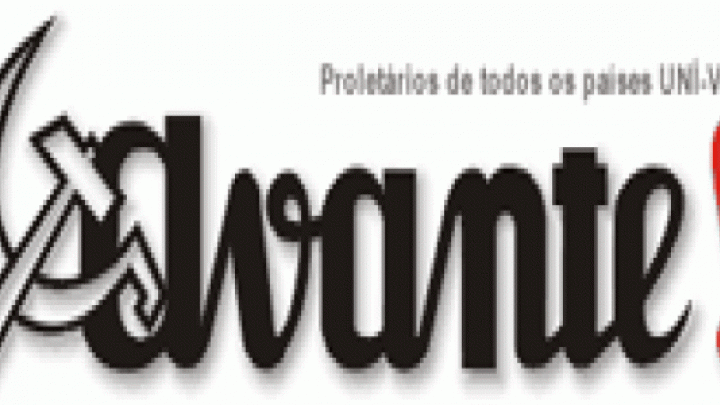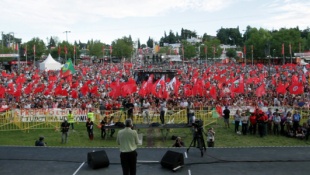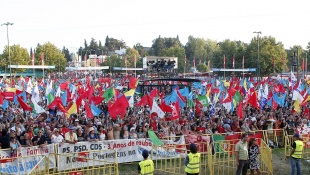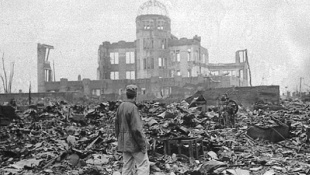Translated "Avante!" Article by Angelo Alves, Member of the Political Committee and of the International Department
The History of oppression and “ Africa’s partition” undergone by the Western colonial powers together with the so complex as well as passionate Africa’s formal decolonization process history ( which begun half a century ago), show how the continent, where about 30% of the mineral and metal ressourses, more than 10% of the oil reserves, about 8% of gas reserves, 17% of the world forests and about 60% of non-exploited arable land are concentrated, has never , throughout its history, stopped being a plunder, interference and instigated war target, carried out by the major world colonialist powers.
Reality of the last 30 years has equally shown that the African continent never stopped being under imperialism’s aim. From supporting criminal regimes as the apartheid unto ethnic-religious origin conflict instigation via financing and weapon supply to groups and militias, passing by the supporting of cliques connected with the European and North-American great transnational companies ( with the consequent training of interested bourgeois, in a neocolonial dependence relationship); through foreign debt mechanisms, IMF programmes, European Union and even NATO “agreements” and by the continents’s growing militarization , namely via the AFRICOM, all has been used to hinder the deepening of the African peoples’ real liberation process and therefore perpetuate imperialism economic and geopolitic rule within the African continent.
This is a reality which, far from attenuating, on the contrary, has become more evident. The capitalism crisis’ deepening and the growing dependence of the capitalist triad before the existent wealth, raw materials and natural ressources within the African continent, combined with the imperialist powers growing concern such as the USA and France before situations such as the growing “Chinese presence” - and the intensification of its trade relations in the continent, in search for raw materials in order to nourish its development and economic growth - or even South Africa’s growing economic or politic relations with the BRIC’s (Brasil, Russia, India and China) or with Latin American countries such as Cuba or Venezuela, are factors which point out towards a greater interventionism and interference perspective throughout the African continent, using typical methods, namely “divide to reign”.
Bringing forth this analysis, one has read about the recent events in Sudan. After decades of instigation and nourishing a brutal conflict, which has its roots in the History rule over this country’s huge oil reserves and mineral wealth, the Western powers (namely the USA and France), confronted with the growing economic relations between Kartum and Beijing, launched the dice for “a peace agreement”which will not hold a happy ending. The current referendum, an imperialism unconcealed option for Sudan’s division, the post-referendum real “Balkanization” risk, are the particular example of how, by instrumentalizing factions and ethnic groups, financing cliques which achieve an exponential enrichment within a country which more than half of its population live under the poverty line, a strategy to go through with the imperialism rule on the greatest African country’s natural ressourses, which spreads from the Red Sea unto Central Africa.
The Sudan events, together with the Côte d’Ivoire, have revealed so far, that the old imperialist instigation to dismantlement and politic and military conflict strategies were not given up and within that framework it is difficult, if not impossible, to talk about the real popular power. And above all, reveal the African national and progressive popular forces’ imperative need, to persist in their peoples’national and social emancipation, therefore achieving what many call the African peoples‘ “second liberation wave”.



